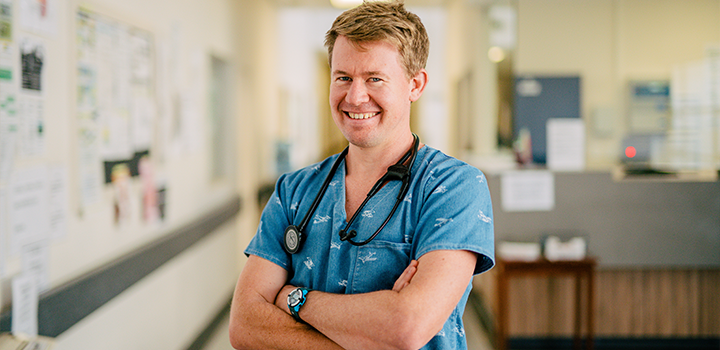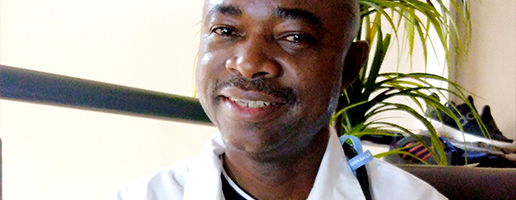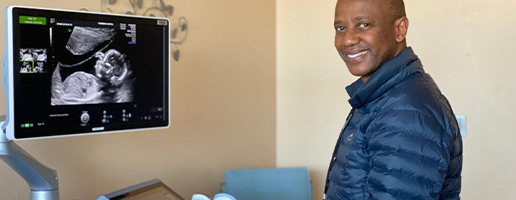Empowering women with better access to family planning

At the time of writing in 2020, Dr Dylan Gibson was in his final year of the family medicine postgraduate programme through Walter Sisulu University in Mthatha. He received a Discovery Foundation Rural Individual Award to fund his research on contraceptives.
Dr Dylan Gibson hopes that his research will empower women in the rural Eastern Cape to have better access to effective family planning.
The Eastern Cape is home ground for Dr Gibson, who grew up in East London. He studied medicine at the University of Cape Town, and then went to White River, Mpumalanga, to complete his two-year internship. Then it was back to the Eastern Cape, to the Madwaleni Provincial Hospital, which is about 80 km from Mthatha.
Empowering young women with choices
As part of the requirements for his MMed degree, Dr Gibson is doing a qualitative study on contraception. "For this study, I will be looking at women's perceptions and experiences of an intra-uterine device inserted immediately after they have given birth. It has been a very interesting journey," he says.
South Africa has a high rate of unintended pregnancies. "These pregnancies can be the result of contraceptive failure, or a lack of knowledge of, or access to, different types of contraceptive methods," Dr Gibson says. "Many women are only really familiar with the injection, which are administered every three months. In the rural areas, women cannot always make it to follow-up appointments for a variety of reasons."
That is why the intra-uterine device, also known as the loop, could be more effective. It is both long-acting and reversible. So why is there not a bigger take-up of this method?
"Women are not told about the full range of contraceptive options during their pregnancies. They therefore rely on things they hear from their family, friends and other community members," Dr Gibson explains.
"By the time women arrive at the hospital to deliver their babies, there isn't enough time to introduce them to a new contraceptive option such as the loop, and many women often end up choosing the method with which they are most comfortable," he adds.
He stresses that antenatal classes provide a good opportunity to counsel women about the contraceptive options available to them. "The right visual aids can be very effective in getting the information about the various options out there," he says.
A family medicine registrar from a family of doctors
When he is not working or studying, Dr Gibson loves spending time adventuring with his family, and, as he puts it, enjoying being a dad. He loves cooking Italian food, and to work it off, he likes to run, surf, cycle and play table tennis.
Dr Gibson's parents are his greatest source of inspiration. His mother is an anaesthetist and his father an orthopaedic surgeon at Frere Hospital in East London.
"I found it incredible doing my undergraduate training in a district hospital, which to me is truly the home of family medicine," Dr Gibson says. "I enjoy primary healthcare and love being able to practise a wide variety of clinical medicine."
He says young doctors get a depth of experience when they have to make do with what they have, and they often don't have ready access to a referral network of specialists. He also says that there is an immense amount of support for rural doctors in South Africa from a variety of sources. Dr Gibson adds, "I'm also passionate about teaching medical students, young doctors and nurses."
Dr Gibson was delighted to hear that his application for a Rural Individual Award from the Discovery Foundation had been successful. He believes the funding will help him to complete his research, and assist with the translation and transcription costs.
"This research has the potential to provide healthcare workers in similar contexts with valuable information to support women in accessing effective family planning. This, in turn, could benefit the community as a whole," he concludes.
This article was created for the 2020 Discovery Foundation Awards and has been edited for the Discovery Magazine. Previously published in The Herald.
About the Discovery Foundation
Since 2006, the Discovery Foundation has invested over R256 million in grants to support academic medicine through research, development and training medical specialists in South Africa.
The Discovery Foundation is an independent trust with a clear focus - to strengthen the healthcare system - by making sure that more people have access to specialised healthcare services. Each year, the Discovery Foundation gives five different awards to outstanding individual and institutional awardees in the public healthcare sector.
Related articles

"Access to reproductive medicine empowers women"
While working as a gynaecologist, Dr Khatija Kadwa recognised the heavy burden that social stigma causes for women dealing with infertility. It became her mission to help women by treating infertility in under-resourced communities in South Africa.

Caring for women when they have an abortion
Who takes care of women after they have had an abortion? Dr Kwakombe Ndjondo's research on women's experiences after voluntary termination of pregnancy at a rural hospital aims to support women and reduce pressure on public healthcare services.

High-risk pregnancies in rural Mpumalanga: a dedicated doctor to the rescue
Having a high-risk pregnancy if you live far away from an urban centre is a terrifying experience. Many women in Mpumalanga are thankful that Dr Sibusiso Nhlapo, obstetrician and gynaecologist, didn't listen when his parents suggested he become a teacher.